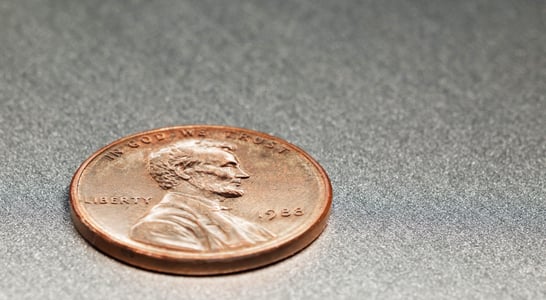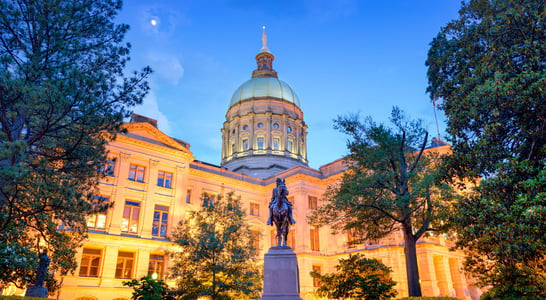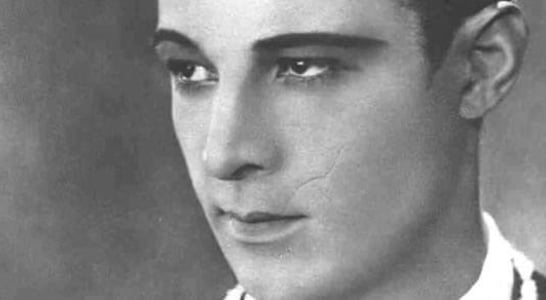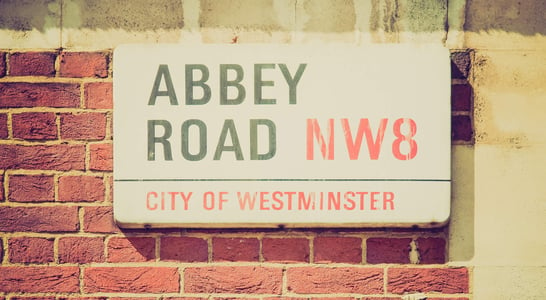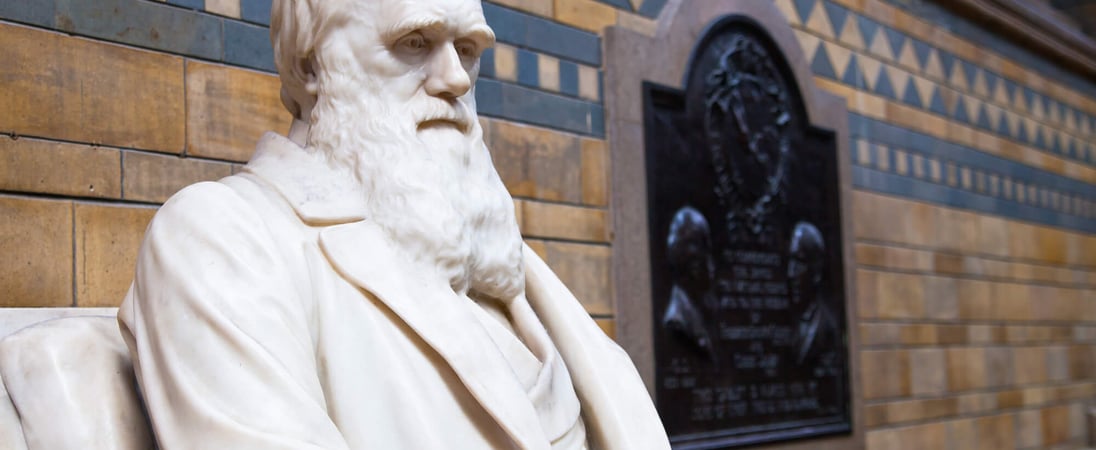
Darwin Day
This visionary naturalist revolutionized science with his groundbreaking theory of evolution, changing the way we view the world around us.
We must, however, acknowledge, as it seems to me, that man with all his noble qualities… still bears in his bodily frame the indelible stamp of his lowly origin.
Charles Darwin
A pivotal moment in history occurred when we began to take a hard look at ourselves, and at life, in a new way. It changed not just how we perceived ourselves, but it also affected how we understood our relationship to all the other life and species on Earth. We came to realize, along the way, that we had been connected, however distantly, to every form of life on Earth, and that moment was both aggrandizing and humbling, all at once.
That moment was when Charles Darwin brought the idea of Law of Natural Selection into the limelight of the scientific world, and we began to see with clear eyes how everything, absolutely everything, was connected.
History of Darwin Day
Darwin’s theories have been absolutely fundamental to the understanding of life and the species of the world as we know it today. Charles Robert Darwin was born in 1809, in Shrewsbury, England, and received his education at University of Edinburgh in Scotland. He grew to become a naturalist and geologist who would eventually impact the thinking of people all over the world.
Darwin was fascinated by the number and variety of fossils from around the planet, as well as the species in their great diversity. So he set out on a five-year voyage on the Beagle to sail around the world and study life in all of its unique and varied forms, making particularly important discoveries in the Galapagos islands.
Darwin’s theories presented the ideas that some species originated from other species, and that even man itself had a shared ancestor with the primates. While his theories were originally rejected by the scientists of his day, they were slowly accepted as more and more data was collected and more species were discovered. DNA research seemed to push his theories even further, as scientists started to see the connections between species in the very genes that composed them.
People have been celebrating Darwin’s birthday (on February 12) for many years, but it came about as an actual day back in the 1990s. It was meant by the founders to not only celebrate Mr. Darwin, but also various other scientific achievements made by humanity.
Darwin Day Timeline
1809
Charles Darwin is born
In a medieval market town in England, Charles Darwin is born the fifth child to parents Robert and Susannah. When he is 8 years old, Darwin’s mother dies and his older sisters take on his care.[1]
1825
Darwin attends Edinburgh University
While he is rather unsuccessful in his years attending Shrewsbury School, considering their thinking narrow, Darwin moves on to attend Edinburgh University where he joins the Plinian Society, a club dedicated to natural history.[2]
1831-1835
Darwin takes a voyage to South America
Spending five years on tour on the H.M.S Beagle, Darwin discovers and studies plants, animals and organisms. He hypothesizes that many organisms go through changes to allow them to survive in certain locations.[3]
1859
On the Origin of Species is published
Stripped of academic references, this most famous book by Darwin is intended to reach the reading public. It oversells almost immediately and a second edition is planned.[4]
1877
Darwin receives an honorary doctorate
University of Cambridge in England recognizes Darwin for his life’s work with an honorary doctorate degree just five years before his death.[5]
How to Celebrate Darwin Day
Enjoying Darwin Day can take all sorts of twists and turns, small or large, alone or with a group, depending on personal preference. Consider these ideas and make some fun and educational plans for how to celebrate Darwin Day:
Head Over to a Museum
Learning is fun, especially when it’s hands-on! Whether visiting a local Museum of Natural History or a Science Museum, fostering an interest in the sciences is a great way to offer a nod to Mr. Darwin and his scientific pursuits.
Host a Discussion Group
As part of Darwin Day, it can be fun to get some friends together to have an intelligent discussion or debate about the theory of evolution (and, in contrast, creation). Make it a book group by discussing some of Darwin’s actual writings, or books written about Darwin’s ideas, like these:
- On the Origin of the Species by Charles Darwin
- Descent of Man by Charles Darwin
- Why Evolution is True by Jerry A. Coyne
- Evolution-Creation Struggle by Michael Ruse
Create Darwinian Inspired Art
Unleash creativity through poetry, painting, drawing, sculpting other activities. Hold a Darwin-inspired art contest at work or with friends. The only rule could be that the theme is somehow related to evolution, the origins of humans, animals, or the way the planet continues to move forward. Be creative and have some fun.
And be sure to honor the winner the title: “Survivor of the Fittest”!
Watch a Film About Darwin
For those who aren’t interested (or don’t have time) to read books about Darwin and his theories, watching a film can be less time-consuming! Check out these films alone or with a group of friends:
- Creation (2009). This somewhat fictionalized account of Darwin’s life focuses on his relationship with his religious wife, Emma and his memory of their daughter, Annie, who died very young.
- Galapagos: Beyond Darwin (1996). This documentary takes underwater footage and science equipment to study marine life 3,000 feet below the surface, in a way that Darwin was never able to in his time.
- Inherit the Wind (1960). Based on a true story, this film follows the trial of a science teacher whose teaching of evolution theories was considered a crime.
- The Genius of Charles Darwin (2008). A three part series, this documentary by Richard Dawkins covers interesting topics such as how evolution works, why Darwin’s theories might be true, the controversy behind it, and whether evolved creatures can actually find significance.
Learn About Darwin’s Theories
Some people might find that the best way to celebrate Darwin Day is to really study evolution and familiarize themselves with the concept of ‘Natural Selection’. It’s an often misunderstood concept, with people mistaking ‘Survival of the Fittest’ for ‘Survival of the Best’, and failing to grasp that ‘fittest’ is for a certain set of circumstances. The heart of it is, if a member of a species survives to pass on its genes, then those genes are the ones that survive to shape the new species. Eventually, with enough beneficial mutations, it can go on to become an entirely new species suited for its environment. Read up! It’s only the ancestors of everything you have to learn about!
Darwin Day FAQs
Who was Charles Darwin?
A naturalist from England whose work in natural selection became the foundation for the modern study of evolution. His work was rather shocking to the Victorian society he lived in, but his non-religious theories appealed to a new class of professional scientists.[1]
What did Charles Darwin do?
Famous for promoting the theory of evolution and the mechanism of natural selection, Charles was a British naturalist who formally studied medicine and divinity. His work in South America and the Galapagos Islands fueled his passion for science and biology as he observed and collected samples of rocks, plants, animals and fossils.[2]
Was Charles Darwin the first to propose evolution?
Contrary to what many people believe, Darwin was not necessarily the first to propose the theory that species might evolve. However, Darwin was one of the first to present a mechanism for this evolution, which is natural selection. He corresponded with Alfred Wallace who also promoted the idea.[3]
What was Charles Darwin’s most famous book?
As a scientist, Darwin made a number of discoveries and contributions. However, the most popular book he ever wrote and published was On the Origin of Species, which was published in 1859.[4]
How long did Charles Darwin live?
Born in Shrewsbury, England in 1809, Charles Darwin lived until the age of 73 and eventually died after suffering from a heart attack and seizures.[5]
Also on ...
View all holidaysHug Day
Spread comfort, connection, and joy - one simple embrace can brighten someone’s day.
National Lost Penny Day
Scouring couch cushions and nooks, finding those elusive copper coins brings a little unexpected joy to everyday life.
We think you may also like...
Valentino Day
On the anniversary of his death, honor the life of 1920s film star Rudolph Valentino with a marathon of movies like The Four Horsemen of the Apocalypse (1921).
National Barbie Day
This iconic doll has evolved over the years, inspiring generations of children to imagine the possibilities of their own lives and futures.
National Mario Day
Join this iconic Italian plumber on his adventures through fantastic worlds, battling fierce enemies and saving the Princess!
Global Beatles Day
Put on your favorite Beatles record and honor the British global phenomenon that changed the face of music forever, and continues to influence musicians everywhere.

